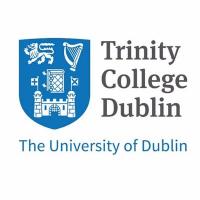Film Studies (M.Phil.)
Course Description
The M.Phil. in Film Studies at Trinity offers two interesting ways to pursue further analysis of film and the film industry at university:
1. The Theory, History, Practice strand is a unique opportunity to embark upon a detailed investigation into the intellectual currents and aesthetic concerns surrounding the study and practice of film and digital media.
2. The Screenwriting strand offers the opportunity to focus on writing for different screens in a critically informed and creative context.
At every step of the way your progress will be informed by an emphasis on independent study, critical thinking and creative practice. In addition, the course aims to develop the key transferable skills required for postgraduate study. These include research preparation, time management and oral and written presentation skills.
MPhil in Film Studies -Theory, History Practice strand is also offered part time over two years. It comprises 60 ECTS of taught modules and a 30-ECTS research component. It is a unique opportunity to embark upon a detailed investigation into the intellectual currents and aesthetic concerns surrounding the study of film and digital media. . From the outset, questions of history, theory and context are brought to bear on issues of close analysis and interpretation. Modules in Screenwriting, Creative Documentary Practice and Editing allow students to balance film theory and history with practice.
The Screenwriting strand is also offered part time over two years and allows students to develop the skills required to write successfully for a range of different screens in a critically informed and creative context. It comprises 60 ECTS of taught modules and a 30-ECTS research component. The objective of the Screenwriting strand is to prepare screenwriters who can adapt to an industry that recreates itself regularly around technological advances. Students will select their chosen platform(s) when preparing their portfolio, bring their writing to industry standard and complete their studies with a research project screenplay in their chosen area of interest: feature film, television, on-demand broadcast, documentary, or adaptation.
Intakes
- Jan
- Sep
Application Processing Time in Days: 30
Minimum English Language Requirements
| English Level Description | IELTS (1.0 -9.0) | TOEFL IBT (0-120) | TOEFL CBT (0-300) | PTE (10-90) | |
|---|---|---|---|---|---|
| Expert | 9 | 120 | 297-300 | 86-90 | |
| Very Good | 8.5 | 115-119 | 280-293 | 83-86 | |
| Very Good | 8 | 110-114 | 270-280 | 79-83 | |
| Good | 7.5 | 102-109 | 253-267 | 73-79 | |
| Good | 7 | 94-101 | 240-253 | 65-73 | |
| Competent | 6.5 | 79-93 | 213-233 | 58-65 | |
| Competent | 6 | 60-78 | 170-210 | 50-58 | |
| Modest | 5.5 | 46-59 | 133-210 | 43-50 | |
| Modest | 5 | 35-45 | 107-133 | 36-43 | |
| Limited | 4 | 32-34 | 97-103 | 30-36 | |
| Extremely Limited | < 4 | < 31 | < 93 | < 30 |
Job Opportunity Potential
If you are an international student studying at Trinity, you might be considering internship and graduate work in Ireland, in your home country, or elsewhere. This section provides information for Non EU students on working in Ireland during and after your studies. For information and resources to support an international job search, see our Devex resource which includes international job search advice and information.
Employers value candidates who have more to offer than a good degree with high grades. They look for students who are well rounded and who have experience outside the classroom. Search for and take advantage of opportunities to gain experience, develop your skill set, and gain a clearer picture of what you like and don't like in terms of career options.
For example, you can get involved in some of the many student clubs and societies in college, volunteer or get a part time job. Remember that voluntary work is as valuable as paid work on your CV or resume - it's a great way to demonstrate your skills to future employers. Have a look at the TCD Civic Engagement website and check out volunteering opportunities in Ireland and abroad.
PSW Opportunity
- 2 Years
Admission Requirement / Eligibility Criteria
Postgraduate Admission Requirements
Postgraduate work in Trinity is academically challenging and the University has high academic entry requirements.
Applicants will need to:
hold at least a 2.1 honors degree from an Irish university or equivalent result from a university in another country.
display a high level of competence in the English language in one of the examination systems recognised by Trinity College Dublin.
To qualify for admission to a degree course at the University you must meet the requirements outlined above. For more information on what you must include in your application, please see our detailed guide on Making an Application.
Postgraduate English Language Requirements
All applicants whose first language is not English and who have not been educated through the medium of English must present one of the following qualifications in the English language:
IELTS (Academic version) and IELTS Indicator : Grade 6.5 overall.
TOEFL and TOEFL iBT Special Home Edition: 88 internet-based, 570 paper-based, 230 computer-based.
University of Cambridge:
Proficiency Certificate, Grade C or better (CEFR Level C1 or C2)
Advanced Certificate, Grade C or better (CEFR Level C1 or C2)
Pearson Test of English (Academic) - PTE Academic: a minimum score of 63 to be eligible (with no section score below 59)
Duolingo English Test: minimum overall score of 120/160 with no section below 105, dated since January 2020
An award certificate with a minimum II.1 overall score from Trinity's Centre for English Language Learning and Teaching's Pre-Master's Pathway Programme. The Pre-Master’s Pathway Programme is an academic English course for international students with conditional offers for postgraduate study at Trinity. Passing the programme means you meet Trinity’s English language requirement and can progress to your postgraduate course without retaking IELTS or any other exam.
Please also note that existing IELTS, TOEFL, Cambridge and PET scores up to two years old will be accepted for 2023/24 applications in light of test centre closures.
- Course Type: Full Time
- Course Level: Masters/PG Degree
- Duration: 01 Year
-
Total Tuition Fee:
20460 EUR
Average Cost of Living: 10500 EUR /year
Application Fee: 55 EUR
Similar Programs
- Middle East in a Global Context (M.Phil.) at Trinity College Dublin
- History of Art and Architecture (M.Phil) at Trinity College Dublin
- Digital Humanities and Culture (M.Phil.) at Trinity College Dublin
- Childrens Literature (M.Phil) at Trinity College Dublin
- Applied Intercultural Communications (M.Phil) at Trinity College Dublin
- Race, Ethnicity, Conflict (M.Phil.) at Trinity College Dublin

